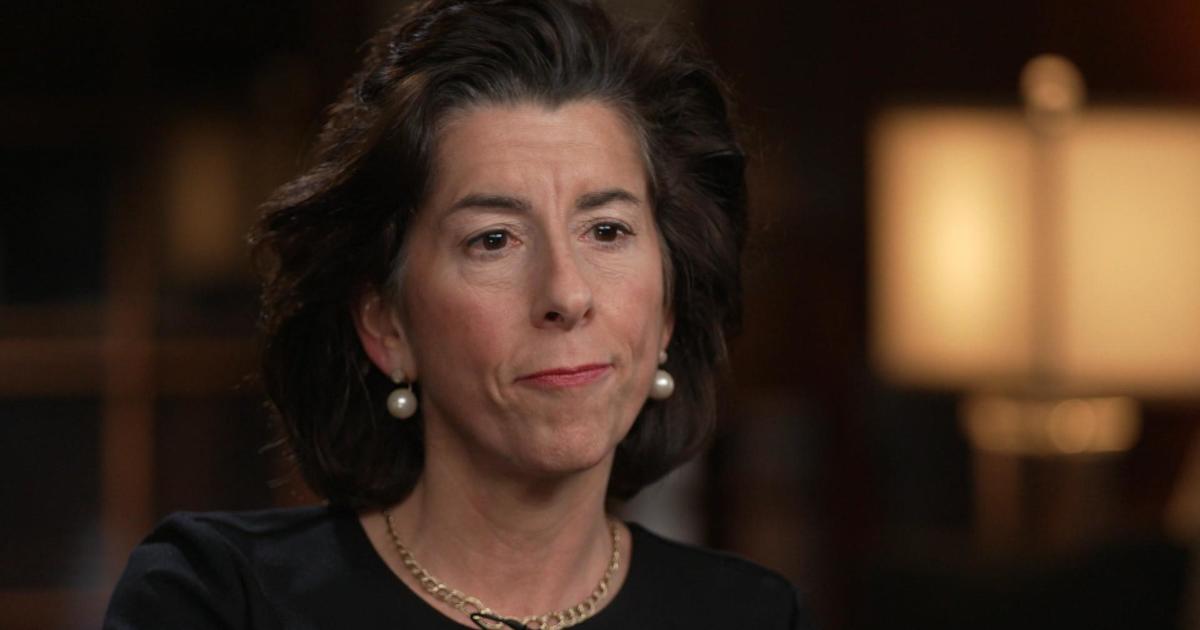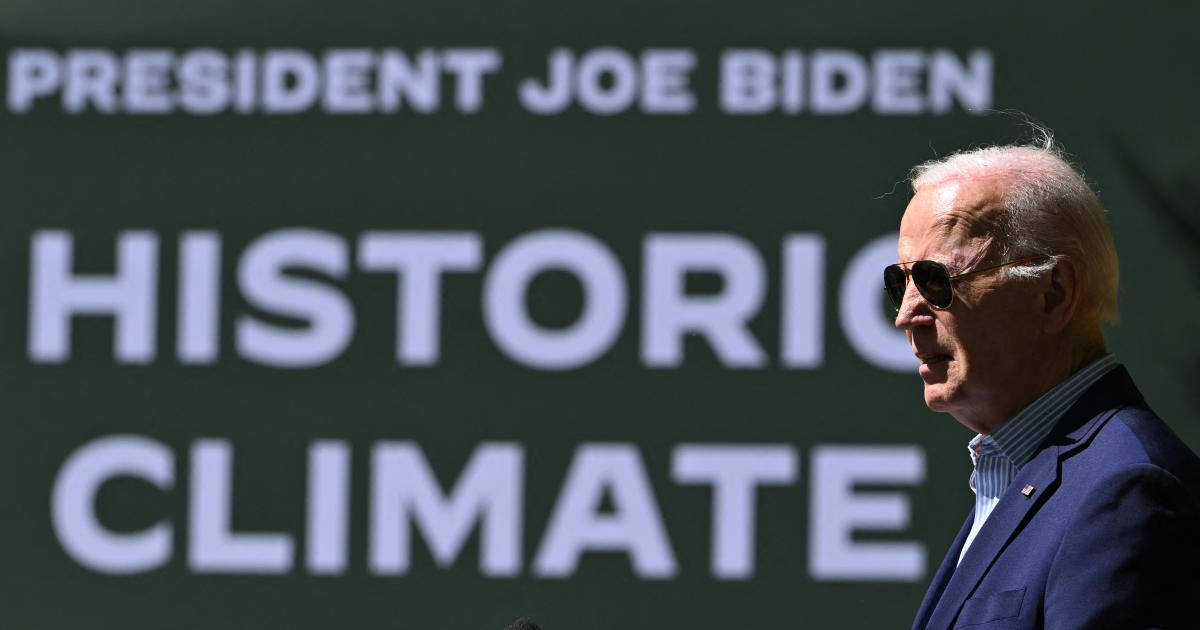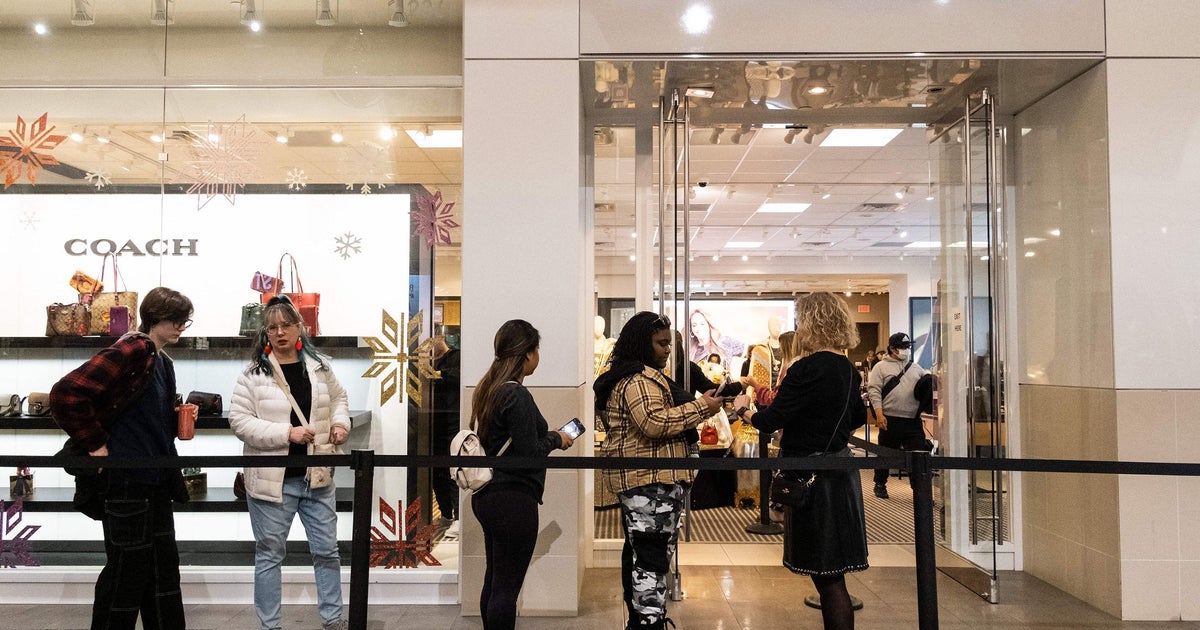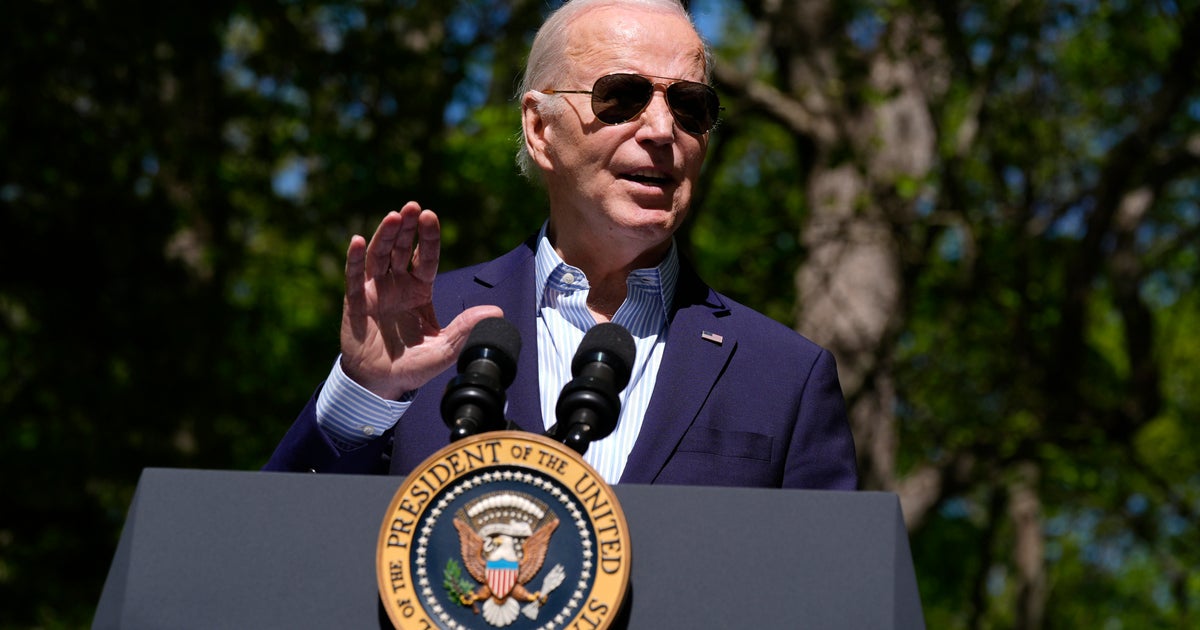Biden vaccine rule: What you need to know about the January 4 deadline and appeals ruling
The Biden administration on Thursday unveiled its new COVID-19 standards for businesses, the U.S. government's biggest push yet to encourage widespread vaccination. The new rules are raising questions about the process for implementing, costs and timing of the requirements for workers and their bosses.
More questions arose after a federal appeals court on Saturday temporarily halted the Biden administration's vaccine rule, citing potential "grave statutory and constitutional issues." That stokes uncertainty for companies subject to the plan, such as whether they should immediately move forward with the requirements.
Under the plan, employers with more than 100 employees must choose whether their workers be fully vaccinated or undergo weekly testing within 30 days of the plan's publication in the Federal Register on November 5.
By January 4, those businesses must implement the rule. The so-called "emergency temporary standard" (or ETS) was requested by President Biden as part of his September COVID-19 action plan, and will be overseen by the Labor Department's Occupational Safety and Health Administration (OSHA).
The reaction from businesses ranged from support to alarm, with the trade group Truckload Carriers Association warning the rule will prove to be "disastrous" as it could lead to an "exodus" of truck drivers during the ongoing supply-chain crisis. But Jim Frederick, deputy assistant secretary of labor at OSHA, said the agency believes the "vast majority" of workplaces will comply with the new requirement.
"OSHA estimates that this rule will save thousands of lives and prevent more than 250,000 hospitalizations" after it goes into effect, Frederick said in a conference call with reporters on Thursday. "We know that many, many workplaces will be looking at this and starting up as early as today."
The regulation has more than 490 pages, making it a complex subject for both employers and their workers. Here's what to know about the new rule.
A court temporarily halted the rule. Can I wait to comply?
Companies should move forward with complying with the OSHA rule despite the ruling, employment attorneys told CBS MoneyWatch.
The 5th U.S. Circuit Court of Appeals granted an emergency stay of the OSHA requirement, a ruling that came after attorneys general in 11 U.S. states filed suit Friday against the new vaccine requirement for workers at large companies.
But employers should not assume that the OSHA regulation will be suspended indefinitely, Amy Traub, chair of BakerHostetler's national labor and employment group, said in an email.
First of all, she explained, it's unclear whether the appeals court ruling applies nationally or only to the Fifth Circuit, which covers Louisiana, Mississippi and Texas.
The lawsuits will be consolidated before a single federal circuit court that will be determined by lottery, she added. "At that time, all proceedings will be ruled upon, including whether a previous grant or denial of a temporary stay issued by any of the federal circuit courts will stand," Traub said.
She added, "There is no way to know at this time how (or how quickly) this will all play out."
In the meantime, the deadlines are fast approaching for employers to comply with the OSHA regulation, which is why attorneys are recommending that businesses continue to work on vaccine or testing standards that will meet the agency's rule.
"Prudence suggest that employers begin preparing for compliance while keeping an eye on the legal challenges," noted John Ho, labor and employment attorney and co-chair of the OSHA department with law firm Cozen O'Connor.
Who is affected by the government rule?
The new rule covers all private-sector business with at least 100 employees. The Biden administration on Thursday said about 84 million workers will be impacted by the requirements — roughly two-thirds of the nation's private-sector labor force.
The Biden administration has created separate vaccine requirements for federal workers. OSHA could eventually choose to extend the COVID-19 rule to smaller businesses, according to the agency.
"OSHA will consider whether to extend the rule to smaller businesses" during the open comment period after the rule is published on the Federal Register, Solicitor of Labor Seema Nanda said on the conference call.
Are remote workers covered?
The new regulations don't apply to remote workers who work exclusively from home, said Keith Wilkes, a labor and employment partner at the law firm Hall Estill in an emailed statement.
But, he added, if an unvaccinated office employee has been teleworking for a few weeks and then must go into the office where other workers will be present, that worker must receive a COVID-19 test within seven days prior to that in-office day.
OSHA also said that employees who work exclusively outdoors won't have to comply with the regulation.
What about part-time workers?
Part-time workers are included toward an employer's worker count, according to the ETS. In other words, if an employer has 75 full-time workers and 25 part-time workers, that business is considered to have 100 employees under the regulation and must comply with the rule.
That means that part-time workers will need to adhere to whatever standard their employer chooses, such as full vaccination or weekly testing.
But independent contractors aren't counted toward a business' 100-person employee threshold, OSHA noted.
What are the deadlines for the rule?
There are two deadlines, OSHA said.
- By December 5, employers must comply with most requirements of the new rule, such as ensuring that unvaccinated workers wear a mask at their workplace. Employers must also choose whether they will require vaccinations or weekly testing by this date.
- By January 4, employers must ensure workers are either vaccinated or begin testing unvaccinated employees every week.
- Also by January 4, workers who are required to be vaccinated must be fully vaccinated.
The federal government is staggering the rollout to give employers enough time to gather information about their workers' vaccination statuses, Nanda said.
Still, businesses should quickly begin working on meeting the requirements since most of them must be met by the December 5 deadline, said Amy Traub, chair of BakerHostetler's national labor and employment group on a call to discuss the new rule.
"It's moving a lot faster than a lot of folks anticipated," she noted.
Can I get a religious or medical exemption?
In some case, yes, according to OSHA.
"Some employees will be requesting exemptions for medical accommodations. There may be some with medical contra-indications" while others may have religious beliefs that prompt them to ask for a exemption, Frederick of OSHA said. "The [mandate] does account for that."
How will employers check vaccinations?
Generally, employees can provide their COVID-19 vaccination card to their bosses, OSHA's Frederick said.
In cases where vaccinated employees can't provide a vaccination card, the regulatory agency will "provide an attestation process" for workers to state that they've been vaccinated.
However, employees who provide a fake vaccine card or who present false information could face penalties, given that counterfeiting a vaccine card is a federal crime.
Will I get paid time off to get vaccinated?
Yes, OSHA says. Businesses that are covered by the rule are required to provide paid time off for workers to get vaccinated.
Will I get paid time off if I experience vaccine side effects?
Yes, according to OSHA. All businesses that are impacted by the regulation must provide sick leave for workers to recover from any side effects from the vaccine.
Who will pay for weekly testing for the unvaccinated?
Employers aren't required by OSHA to pay for weekly COVID-19 tests for unvaccinated workers, which means that some employees may end up on the hook for test costs.
Generally, test kits cost $10 to $15, which means that an unvaccinated worker could face more than $500 in annual costs to pay for their own testing.
However, OSHA noted that some businesses may be required to pay for weekly tests due to local or state laws, as well as through collective bargaining agreements.
How will OSHA check on compliance?
Businesses must maintain records on workers' vaccination statuses. But for workplaces where employees aren't required to be vaccinated, workers will need to get weekly tests and wear masks.
OSHA said that it will check on compliance with the latter by doing spot-checks of businesses, and will also rely on complaints the agency receives about businesses that aren't following the regulation.
"We will have our staff available and responsive to complaints, which is a No. 1 way we hear about problems in a workplace," Frederick said.
What are the penalties for businesses that don't comply?
Penalties for noncompliance can be steep. OSHA will fine businesses almost $14,000 for each employee who fails to comply with the rule. But businesses that are in "willful violation" of the requirements will face additional fines of about $136,000.
"We know that the vast majority of workplaces will be in compliance," Frederick said. "In those cases where OSHA does have to come and work with a workplace with non-compliance, we assess the situation and the gravity or severity of a citation issue."



